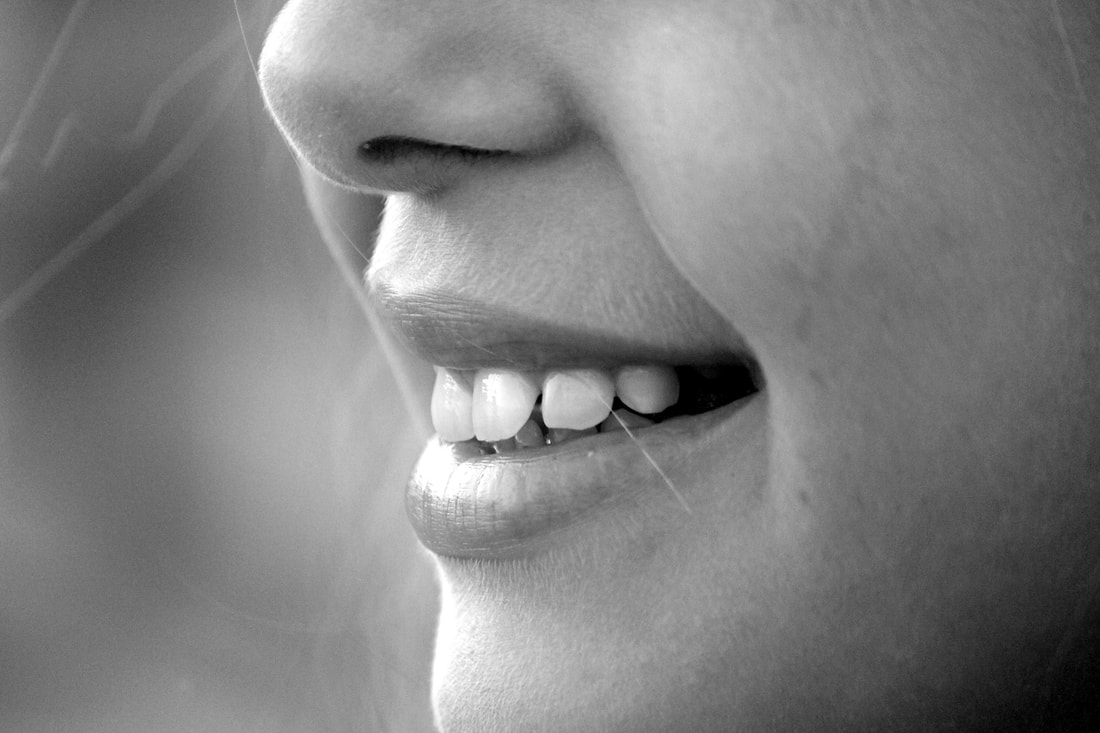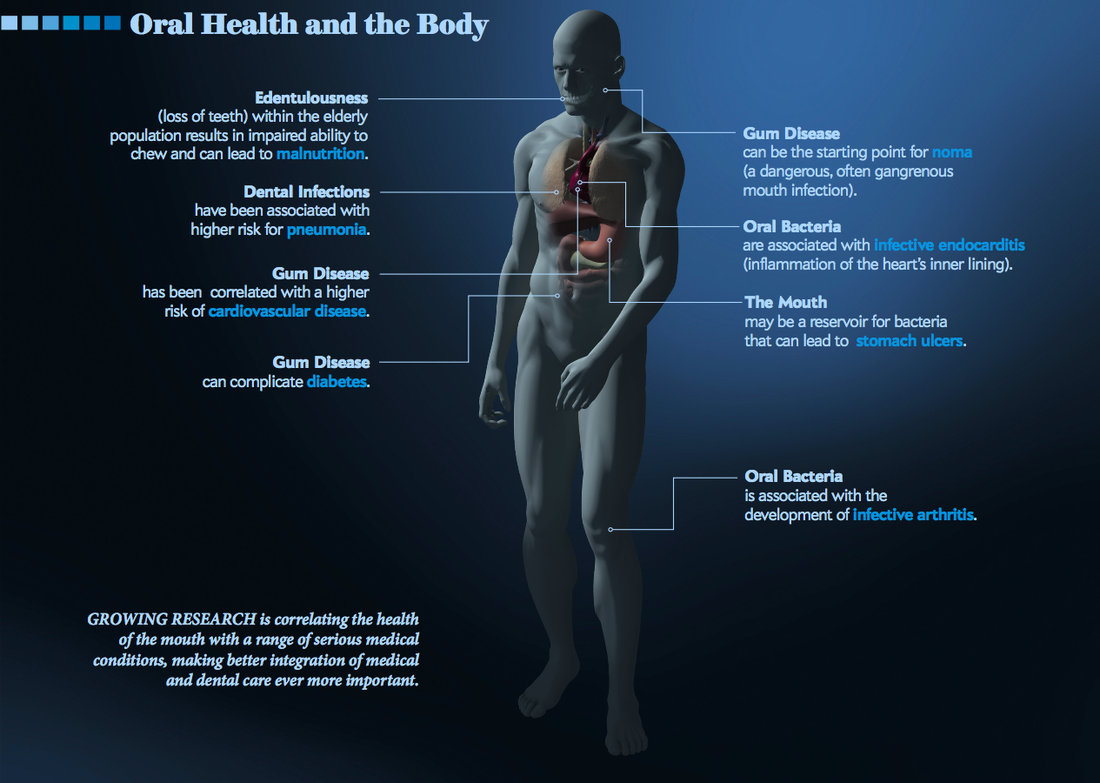Ronit Mor, NDNew research suggests that the health of your mouth mirrors the condition of your body as a whole. Once you stop and think about it, it makes perfect sense. After all, you are not teeth-plus-the-rest-of-you but a single, unified whole. Oral Health and Systemic Diseases Mouth lesions may be the first signs of HIV infection, aphthous ulcers are occasionally a manifestation of Celiac disease or Crohn’s disease, pale and bleeding gums can be a marker for blood disorders, bone loss in the lower jaw can be an early indicator of skeletal osteoporosis, and changes in tooth appearance can indicate bulimia or anorexia. Recent research has detected periodontal bacteria in the affected joints of those with rheumatoid arthritis and near the hearts of those with cardiovascular disease. Bacterial and other toxins found in root canal teeth may similarly travel and wreak havoc throughout the body. Beyond helping prevent bad breath, tooth decay and gum diseases, taking good care of your mouth, teeth and gums can also ward off serious health problems such as heart disease, diabetes, respiratory disease, osteoporosis, rheumatoid arthritis, and even dementia. In 2016, at the Academic Centre for Dentistry Amsterdam, the largest dental school in the Netherlands, researchers reviewed the medical records of 60,174 patients age 35 and older, looking for an association between periodontal gum disease and atherosclerotic cardiovascular diseases such as angina, heart attack and stroke. They found that those with gum disease were twice as likely to have had a heart attack, stroke or severe chest pain. In fact, according to the Academy of General Dentistry, more than 90% of all systemic diseases (such as diabetes, cancer, heart disease, kidney disease) have oral manifestations, including swollen gums, mouth ulcers, dry mouth and excessive gum problems. Your Teeth are Connected to the Rest of Your Body, Physically and Energetically About 5,000 years ago, Traditional Chinese Medicine (TCM) identified what we now know as the meridian system: a series 14 tangible channels carrying energy into and affecting every organ and every physiological system, including the immune, nervous, endocrine, circulatory, respiratory, digestive, skeletal (including teeth), muscular, and lymphatic systems. So what does this mean, practically speaking? When a tooth becomes infected or diseased, the organ on the same acupuncture meridian could also become unhealthy. The opposite is also true: dysfunction in a specific organ could lead to a problem in the corresponding tooth. In other words, if you’re experiencing a problem in one area, it’s worthwhile to look into what else may be happening along that same energetic channel. Source: Scientific American, The Future of Oral health Report
Seeing a holistic/biological dentist regularly will help you keep your mouth in top shape and allows your dentist to watch for developments that may point to other health issues. A dental exam can also detect poor nutrition and hygiene, growth and development problems and improper jaw alignment. Remember to provide your holistic/biological dentist with a complete medical history and inform him or her of any recent health developments, even if they seem unrelated to your oral health. Oral Hygiene 101 At home, you can practice good oral hygiene by:
A holistic/biological dentist is a dentist who practices dentistry while understanding that what happens to the teeth and gums may have an impact on the rest of the body. Holistic/biological dentists believe that prevention is the best cure, that tooth decay can be cured or prevented with proper nutrition, and that we should use all dental materials with a healthy degree of skepticism. To learn more about holistic/biological dentistry, please visit the International Academy of Biological Dentistry and Medicine (IABDM) website and the Holistic dental Association website. Comments are closed.
|
Archives
October 2022
Categories
All
|
|
FOLLOW US
|
RESOURCES
|
©2020-2024 Ronit Mor LLC. ALL RIGHTS RESERVED
All statements on this website have not been evaluated by the Food and Drug Administration. The content of this website is not intended to diagnose, treat, cure, or prevent any disease.
All statements on this website have not been evaluated by the Food and Drug Administration. The content of this website is not intended to diagnose, treat, cure, or prevent any disease.



 RSS Feed
RSS Feed
